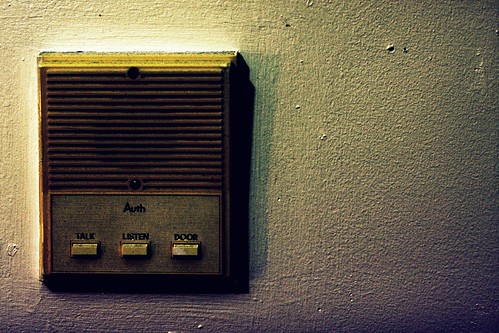 When I listen to clinicians, I sometimes have to wonder how Homo Sapiens ever survived the past 250,000 years. With the clinical minutiae that exist these days, it's a wonder that we haven't become extinct long before now.
When I listen to clinicians, I sometimes have to wonder how Homo Sapiens ever survived the past 250,000 years. With the clinical minutiae that exist these days, it's a wonder that we haven't become extinct long before now.
Walk into any of countless chiropractic, massage therapy, and physical therapy offices around the world, and you will hear the woeful tales of asymmetries and mal-alignments. You will hear of the maladies of the kinetic chain and the hypothetical relationships and regional interdependence from great toe to TMJ and all points in between. You will hear descriptions of two degrees of varus at the subtalar joint which, since it has been uncorrected for the past 40 years, has now created micro-trauma that has evolved into your back pain, your headaches, your arterial insufficiency, and your eyes being divergent.
I have no idea how we managed to survive the onslaught of those two degrees. I suspect the species is doomed. Who needs an ice age when the scourge of two degrees of varus is upon us?
 It's not just a Republican thing. And it's not just a Democrat thing.
It's not just a Republican thing. And it's not just a Democrat thing.
When you get right down to it, consumer access to physical therapy could - and should - be an issue with bipartisan support nationwide. Both sides of the aisle should absolutely love it for very different reasons.
But it becomes readily apparent that they don't - at least not consistently from state to state. With a mid-term federal election cycle and plenty of state-wide elections soon to be upon us again, it would be helpful to understand why.
 In health care, there is much talk of control. One of the biggest issues is controlling the spiraling cost of care.
In health care, there is much talk of control. One of the biggest issues is controlling the spiraling cost of care.
In the same breath, we have become transfixed by outcomes for any given episode of care. This is thought to help control costs – the costs that are faced right now, what I call the upstream costs.
But over the long-term, the control we need to discuss is locus of control. This is the control that will ultimately provide health care with true, epic reform.
 August is always a month of anniversaries and times of reflection. I am not quite sure why, but August seems to have accumulated a lot of life events, seemingly more so than any other month.
August is always a month of anniversaries and times of reflection. I am not quite sure why, but August seems to have accumulated a lot of life events, seemingly more so than any other month.
This year has been no different. It has been a nostalgic couple of weeks since my last installment of the Report. As a matter of fact, this week marks my 23rd anniversary of moving to Austin, inching me ever closer to having lived as many years here as I did in Canada. Just for the record, the day of the 50/50 split will be July 29, 2015, assuming that Austin is still home. I don't see that changing any time soon.
In this episode of the Rhubarb Report, I go back in the time machine for a few of those August moments in time. Gretzky, Erving, and Peralta - any of those names ring a bell?
 It may have been one of the worst value propositions ever made. I know you've heard it before -
It may have been one of the worst value propositions ever made. I know you've heard it before -
"Hands-on care is quality care".
I have heard it more than once, be it in a clinical environment, educational program, or on social media. What makes this scenario even worse is how the public has been snowed into believing it. Clinicians have, over time, skillfully trained the public to believe this. While doing so, clinicians continue to perpetuate a myth - that quality care is inherently related to the laying-on off hands.
 Clinicians like to think they know what is best for the patient. And oftentimes, that is true. I mean, isn't that why patients come to see us?
Clinicians like to think they know what is best for the patient. And oftentimes, that is true. I mean, isn't that why patients come to see us?
But there is a fine, yet distinct, line between patient-centered care and paternalism. You know, the "father knows best" mentality that pervades our health care system right now. It might have been fine in the 1950's, but patients of the 2000's are becoming consumers when it comes to their health care. And rightfully so.
If we don't start paying attention, paternalism will be the demise of health care as we know it. And maybe that's a good thing.
 Physical therapist education is something that I have been involved with for many years. I have seen both sides of the coin - the didactic educational side, and the clinical instructional side. I have also experienced the process of accreditation, albeit with a physical therapist assistant program.
Physical therapist education is something that I have been involved with for many years. I have seen both sides of the coin - the didactic educational side, and the clinical instructional side. I have also experienced the process of accreditation, albeit with a physical therapist assistant program.
There is always talk of "preparing students to take the licensure exam". However, the sad reality is that accreditation and licensing exam standards don't always reflect the current status of research and/or clinical guidelines in the profession.
So here's the question: is the goal of physical therapy education to get graduates to pass an exam, or is it to train competent clinicians - or both?
 "Running Injuries: Etiology And Recovery- Based Treatment" (co-author Bridget Clark, PT) appears in the third edition and fourth editions of "Clinical Orthopaedic Rehabilitation: A Team Approach" by Charles Giangarra, MD and Robert C. Manske, PT.
"Running Injuries: Etiology And Recovery- Based Treatment" (co-author Bridget Clark, PT) appears in the third edition and fourth editions of "Clinical Orthopaedic Rehabilitation: A Team Approach" by Charles Giangarra, MD and Robert C. Manske, PT.
 Allan Besselink, PT, DPT, Ph.D., Dip.MDT has a unique voice in the world of sports, education, and health care. Read more about Allan here.
Allan Besselink, PT, DPT, Ph.D., Dip.MDT has a unique voice in the world of sports, education, and health care. Read more about Allan here.
 Top 5 finalist in three categories: "Best Overall Blog", "Best PT Blog" and "Best Advocacy Blog".
Top 5 finalist in three categories: "Best Overall Blog", "Best PT Blog" and "Best Advocacy Blog".